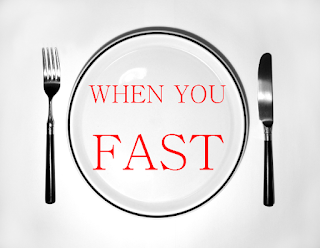 Fasting for weight loss seems to be one of the hottest trends in diet right now. But despite its current popularity, fasting has been used for thousands of years for various purposes. (Even intermittent fasting can increase his report?. Not only for weight loss) Due to its popularity among celebrities, people came to believe that intermittent fasting for weight loss has an advantage over traditional dieting approaches and exercise.
Fasting for weight loss seems to be one of the hottest trends in diet right now. But despite its current popularity, fasting has been used for thousands of years for various purposes. (Even intermittent fasting can increase his report?. Not only for weight loss) Due to its popularity among celebrities, people came to believe that intermittent fasting for weight loss has an advantage over traditional dieting approaches and exercise. It does not. Although it may be a strategy for losing weight safely (if done correctly!) That actually does not give better results than other methods of fat loss.
24 hours fasting:
This protocol popularized by Brad Pilon in his book Eat, Stop, eat. (I really presented at the science behind intermittent fasting for weight loss). Brad's approach is simple just do not eat for two consecutive periods of 24 hours per week.
16/8: This protocol requires fasting shorten the "window to eat" each day so that your fasting for 16 hours and eat for eight hours for many people, this means that breakfast starts at noon or 13:00 and then exit . eat 8 or 21 hours a day.
Whichever protocol you choose, there are three universal components for weight loss that people often forget when they turn to fasting as a weight loss strategy. Here's how they might affect your success with intermittent fasting for fat loss:
You must maintain a calorie deficit:
At the most basic level, intermittent fasting requires long periods of not eating so that when you eat, you can eat normally and not worry about eating less create a calorie deficit. Here is a concrete example:
Focus traditional diet: 1750 calories per day are burned, if you eat 1,250 calories a day to create a deficit of 500 calories / day. During the week, you will have a total calorie deficit of 3500 calories, which produces about one pound of weight loss per week.
Intermittent fasting approach: 1750 calories per day and burn rather than eat less each day, choosing to fast for two non-consecutive 24 hours during the week. The rest of the week, eat as much as your body needs (1,750 calories / day). This creates a weekly calorie deficit of 3500 calories, which produces about one pound of weight loss per week.
You must display self-control:
Self-control is a necessity during times of fasting and not fasting. Calorically reward for quick success not undermine what you're trying to achieve. Pilon advises: ".. When the fast is finished, you have to pretend never happened fast No compensation, no reward, no special way to eat, no shakes, drinks or special pills" It's harder than n 'but it seems crucial for the success of fasting for weight loss. Fasting for several hours does not give you permission to eat what you want in the amount you want.
You must be consistent:
Consistency is the asset for the long term success of weight loss. You can not fast for a couple of days, then switch to a low carbohydrate diet for a week, then go back fasting or a high-carbohydrate approach. I know people who are more successful with losing weight fasting take a long-term approach to lose and maintain your weight, not a quick fix to lose weight quickly. The most consistent fast (not the length of the fast current, but days, weeks, months in which you use intermittent fasting), so that you will reap more benefits. As time passes, your body will have time to rise and appropriate enzymes to maximize fat burning during the fast roads.
So if you fast?
Fasting for weight loss works, but so do many other approaches. No dietary approach is magical. Some research suggests that a very low carbohydrate produces exactly the same benefits of fasting-no need to stop eating. If you find yourself overeating after fasting or get brittle and light head during fasting (signs of low blood sugar), fasting is probably not a good method for you. Know your body and select the appropriate diet accordingly.
Source: here












i like this article :D
ReplyDeleteOk, may be useful for you, thank you for visiting
Delete